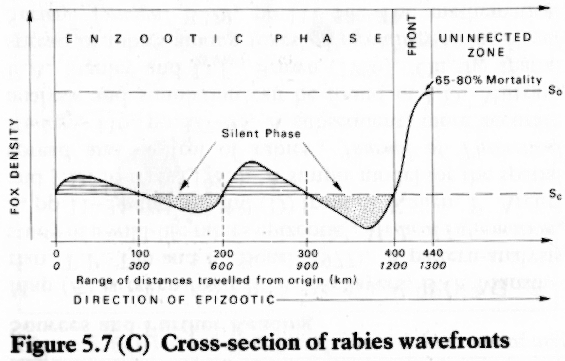 |
||||
|
||||
 |
||||
|
||||

The plot above shows the expected response of raccoon populations to the introduction of rabies (although it was prepared with foxes in mind!): there is a sharp drop in population, due to the high mortality, followed by oscillatory variation in populations. This oscillation is due to the sustainability of rabies in small populations (below a certain critical population level, rabies can't be sustained); when the population rises above the critical level without rabies pressure, however, rabies can reinvade, resulting again in a reduction to subcritical population levels, and so on, and on, and on....